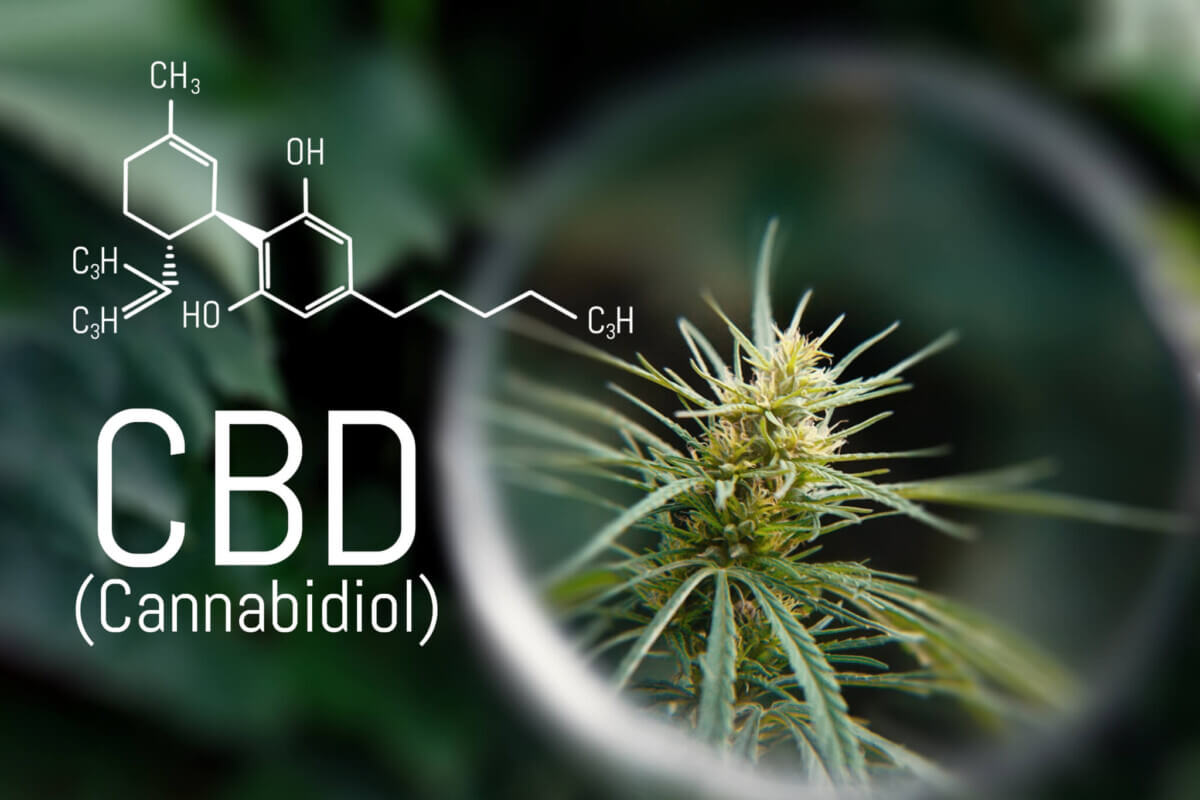
CBD Oil (© Aleksandr - stock.adobe.com)
🔑 Key Findings:
- Products high in CBD outperform THC for anxiety relief
- CBD was more likely to reduce anxiety without causing paranoia
- THC-based products led to negative side-effects like impairment and paranoia
BOULDER, Colo. — More and more Americans are turning to cannabis to relieve anxiety. However, new research suggests that those purchasing legal marijuana products should opt for goods high in the nonintoxicating compound CBD instead of the psychoactive cannabinoid THC. Scientists at the University of Colorado, Boulder say products high in CBD appear to be much better at soothing anxiety than others carrying more THC.
THC and CBD are the main cannabinoids found in the cannabis plant, but THC is what gives users marijuana's trademark “high” feeling.
This project saw researchers analyze 300 participants in the first randomized trial examining how legal, commercially available cannabis impacts anxiety symptoms. Study authors add their work is quite timely, as estimates show roughly one in five American adults currently live with an anxiety disorder. That figure makes anxiety the most common mental illness in the country, and prescriptions for anti-anxiety medications continue to rise.
“We need more data before we can say conclusively that there are long-term, beneficial effects, but the short-term effects were very clear: CBD was associated with tension and anxiety relief with limited harm,” says senior study author Cinnamon Bidwell, an associate professor in the Department of Psychology and Neuroscience and the Institute of Cognitive Science, in a media release.
Adults cite anxiety as being among the top three medical reasons (besides sleep and pain) for trying marijuana, but research focusing on its effectiveness in this regard has produced mixed results. Some prior studies indicate using cannabis too frequently or using especially potent products high in THC may actually worsen anxiety over the long run. Other projects, however, show that mixing CBD in with THC-heavy products may counteract some negative side-effects like impairment and paranoia.

In an effort to better understand the distinct short-term and long-term effects of CBD and THC, researchers recruited 300 participants with anxiety; 42 were not cannabis users, while 258 said they tried it at some point. The larger group used one of three possible cannabis goods; a THC-dominant product (24% THC and 1% CBD); a CBD-dominant product (1% THC, 24% CBD); or one with 12 percent CBD and 12 percent THC.
U.S. federal law strictly prohibits the possession or distribution of commercially available cannabis on college campuses - and that includes for research purposes. So, study participants had to purchase their assigned product from a designated dispensary and use it on their own time at an off-campus location.
Over the next four weeks, participants could use the marijuana they bought as much and as frequently as they desired. On average, participants reported using CBD or THC products three times weekly. Over the course of this period, study authors actually used a mobile lab van to drive to each person's home to administer tests prior to, and directly after, they smoked cannabis.
By the end of that period, all four groups reported lower anxiety levels. However, the three cannabis groups enjoyed greater reductions in perceived anxiety than the non-cannabis group. Moreover, people using CBD-dominant products showed the most anxiety improvement.

Researchers observed that while those in the CBD-dominant group didn't feel impaired, they still felt less tense immediately after consuming these products. These participants were also less likely to deal with paranoia immediately after use in comparison to the other two cannabis groups.
“Our findings suggest that THC did not increase anxiety long-term and that CBD-dominant forms of cannabis were associated with acute tension reduction that may translate to longer-term reductions in anxiety symptoms,” adds Gregory Giordano, a professional research assistant at the CU Center for Health and Neuroscience, Genes and Environment (CUChange).
Prof. Bidwell notes that CBD has greater anti-inflammatory properties than THC. So, it’s possible that CBD-dominant products reduce anxiety through the quelling of inflammation in the brain and nerves. However, the researcher adds that even a slight amount of THC (1%) can have a swift impact on mood.
While there are countless prescription drugs available for treating anxiety, the vast majority come with side-effects and a major risk of dependency. Regarding THC, researchers say both early and frequent use of THC will likely increase one's risk of marijuana-related negative side-effects, like problem use and cognitive difficulties.
“Our study suggests that CBD products may be able to relieve anxiety in the moment for adults who use them, and possibly longer-term, in a way that is meaningful and doesn’t necessarily produce the same risks or harms of THC or prescription medications,” Prof. Bidwell concludes. “We need more data before we can make conclusive recommendations, but this is promising news.”
The study is published in the journal Cannabis and Cannabinoid Research.











this is very true for me. i finally switched my cbd oil from full spectrum to broad spectrum because even though the THC in full spectrum is minimal i still got anxiety/high from full spectrum. i cannot stand that feeling that THC gives you. i do like the benefits of the broad spectrum.
THC gave me panic attacks, and CBD prevented panic attacks. It was that simple. I'll never use THC again.